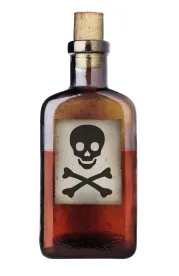In a setback for retail-policyholders hoping to enforce coverage for losses due to COVID-19 in federal court, a Tennessee district court recently knocked out a complaint filed by a sprawling Nashville establishment seeking coverage under a food contamination provision in its property policy. The court’s opinion dismissing Nashville Underground LLC v. AMCO Insurance Co. is noteworthy due to the great lengths taken to define a policy provision—intended to provide broad coverage for disruption of business due to the suspicion of food contamination—in a way that limits coverage contrary to the reasonable expectations of businesses purchasing policies specifically tailored to protect against actual or suspected contamination.
Nashville Underground LLC—“nationally acclaimed, seven-story restaurant, bar, night club and live music venue” located in downtown Nashville—procured a commercial property policy from AMCO Insurance Company to protect it from fortuitous catastrophic events. Given the heightened risk to its business posed by a disruption stemming from food contamination, Nashville Underground purchased a special coverage for business interruption due to “Food Contamination.” Specifically, the policy would provide business income coverage if Nashville Underground was shutdown by a governmental authority as a result of the “discovery or suspicion” of “an outbreak of . . . food-related illness of one or more persons arising out of . . . [f]ood which has been contaminated by virus . . . transmitted through one or more of [its] employees.”
In March 2020, COVID-19 spread rampantly across the country. In an effort to stop its spread, local governments issued broadly worded orders admonishing the public to stay home and requiring non-essential businesses to close. Under the orders issued in Nashville, Nashville Union was required to close, cutting off all of its income. When Nashville Underground sought coverage under its policy, AMCO denied the claim.
Nashville Underground sought to enforce the coverage it paid for by filing suit in Tennessee state court, and AMCO removed the case to federal court. Despite Nashville Underground’s allegations that the government orders requiring its closure were issued in part due to suspicion that COVID-19 was spread through contamination of food and that its employees were exposed to COVID-19 potentially contaminating the food served at Nashville Underground, and despite the lenient notice-pleading standard applicable in federal courts, the court dismissed the complaint.
The thrust of the court’s determination was that the Food Contamination provision was triggered “only if there is suspicion of one or more particular persons actually having become ill,” as opposed to a suspicion that a food-related illness may occur in the future, because the relevant policy wording is written in the “past tense or present perfect tense.” According to the court, coverage under the Food Contamination provision applies only in the limited circumstance where a business is shut down by government order due to a suspicion of an outbreak of food-related illness following confirmed cases of individuals getting sick due to food contaminated by employees. In other words, the prophylactic closure of a restaurant pursuant to mandatory government orders aimed at preventing an outbreak of suspected food-related illness transmitted by food-handlers is not covered.
But the court’s narrow interpretation is hard to square with what the average policyholder would expect when procuring coverage for business interruption due to food contamination, irrespective of the “tense” used in the language. Indeed, it is hard to imagine a restaurant owner discerning any meaningful difference between a government order that shuts down a business due to suspicion that contaminated food may get people sick and a suspicion that contaminated food has already gotten people sick. To the restaurant owner it is all the same—his or her business must close due to “suspicions” of food contamination. And, therefore, it was incumbent upon the insurer to clearly state that the coverage only applied if people got sick first, which it plainly did not do.
The Nashville Underground case admittedly presents a unique issue among the many COVID-19 related coverage lawsuits pending throughout the country. Unfortunately, it is consistent with the same strained interpretations of policy language adopted by some federal courts in limiting broad grants of coverage for the COVID-19 pandemic.






 />i
/>i

